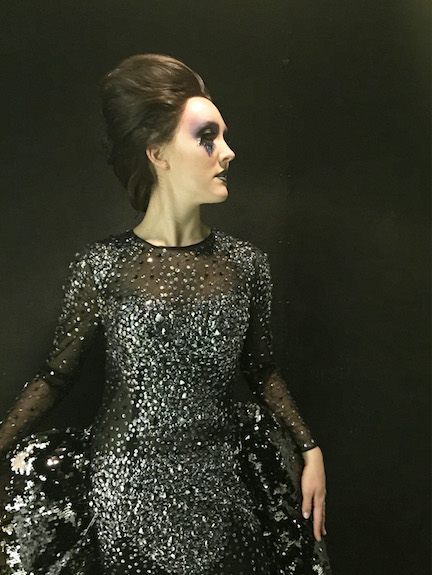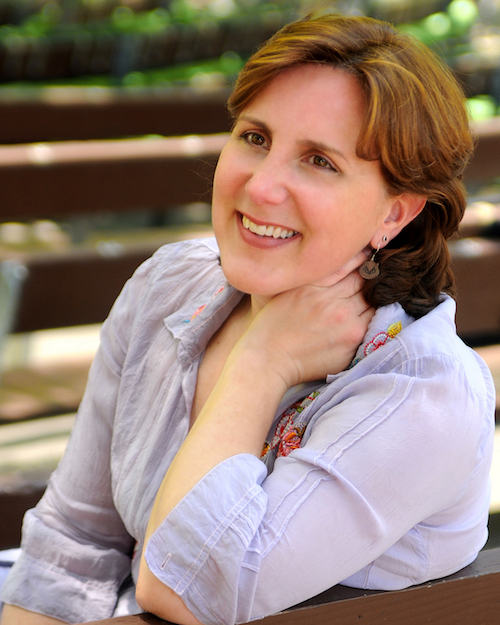(ANNANDALE-on-HUDSON, N.Y.) — A double-bill of fully staged operas including “Higglety Pigglety Pop!” by Oliver Knussen with libretto by Maurice Sendak, based on his book of the same name, and “The Magic Flute, Redux” by Wolfgang Amadeus Mozart, will be performed by the Graduate Vocal Arts Program of the Bard College Conservatory of Music in the Sosnoff Theater of the Fisher Center for the Performing Arts at Bard College on Friday, March 4, at 7pm, and again on Sunday, March 6, at 2pm.
“We are thrilled to present the New York premiere of Higglety Pigglety Pop!, the second of two extraordinary fantasy operas by acclaimed British composer and conductor Oliver Knussen, written in collaboration with the beloved American author Maurice Sendak and based on his children’s book of the same title. We have paired this colorfully orchestrated tale with an abridged version of The Magic Flute, which is, perhaps, the western opera world’s most successful piece of music theater fantasy, written by Wolfgang Amadeus Mozart with libretto by Emanuel Schikaneder,” says Dawn Upshaw, director of the Graduate Vocal Arts Program, Bard College Conservatory of Music.
“Though these two pieces were born out of two extremely different musical styles (not to mention having been written about 200 years apart), they do actually share something in common: they both reflect upon an essential need among all humanity—a yearning for something ‘more’ or beyond ourselves, for meaning and understanding of things outside of our present experience.”
Nicholas Muni is the stage director and production designer for both operas. James Bagwell conducts the Bard College Conservatory Orchestra. All roles are sung by master’s degree students in the Conservatory’s Graduate Vocal Arts Program. Performing in Higglety Pigglety Pop! are: Sophia Burgos (soprano, Jennie, March 6), Kelly Newberry (mezzo-soprano, Jennie, March 4), Danika Felty (Baby), Adanya Dunn (soprano, Rhoda), Lizabeth Malanga (soprano, Baby’s Mother), Corey Dalton Hart (tenor, Ash Tree, Cat), Kimberly Feltkamp (mezzo-soprano, Pig), and Andrew Munn (Lion). Performing in The Magic Flute are: Caroline Dunigan (soprano, Pamina, March 4), Anna-Sophie Neher (soprano, Pamina, March 6), Christopher Remkus (tenor, Tamino, March 4), Olivier Gagnon (baritone, Tamino, March 6), Zoe Johnson (soprano, Queen of the Night), Andrew Munn (Sarastro), Adanya Dunn (soprano, Papagena), Nathaniel Sullivan (baritone, Papageno), Matthew Slipp (Monostatos), Lizabeth Malanga (soprano, 1st Lady), Mary-Elizabeth O’Neill (mezzo-soprano, 3rd Lady, 3rd Boy), Katherine Rossiter (2nd Lady, 1st Boy), Danika Felty (2nd Boy), and Peter Rolfe Dauz (Speaker of the Temple).
“Higglety Pigglety Pop!” by Oliver Knussen (b. 1952) with libretto by Maurice Sendak, is a light-hearted opera that tells the story of Jennie, a Sealyham Terrier, who has everything she could possibly need. Yearning for something more, she decides to leave home to find what is missing, packing all her possessions into her black and gold bag. On her journey, she encounters a Pig-in-Sandwich-Boards who tells her the World Mother Goose Theatre needs a leading lady, and suggests that if Jennie gains “experience,” she may get offered the role. Before she has a chance to perform in her dream job, however, Jennie first becomes nurse to Baby, who refuses to eat. After a string of absurd and dangerous adventures, including almost being devoured by Lion, Jennie ultimately fulfills her dream of landing the starring role in the musical play Higglety Pigglety Pop!
“The Magic Flute” by Wolfgang Amadeus Mozart (1756–1791), with libretto by Emanuel Schikaneder (1751–1812) follows Tamino, a young prince, who finds himself lost in a strange land, and being assaulted by a serpent. Saved by servants of the Queen of the Night, he is sent on a quest to rescue the Queen’s daughter, Pamino (whose image he has fallen in love with), from the tyrant, Sarastro, who has abducted her. Papageno, an eccentric bird catcher who works for the Queen, is commanded to accompany Tamino on his mission. To assist the two travelers, the Queen offers Tamino a magic flute and Papageno silver bells, both items with magical powers that can transform violent feelings into those of joy and love.
“It seemed to us that this double bill added up to an evening about the evolutionary aspect of unconditional love—from mother love to partner love, to love of humanity in all its forms. These pieces resonate with the contemporary struggle of embracing the “other” in various forms, including race, gender, sexual preference, religious beliefs, cultural differences, physical appearance, or physical challenges,” says Muni.
ABOUT THE ARTISTS
James Bagwell, Conductor
James Bagwell maintains an active international schedule as a conductor of choral, operatic, and orchestral music. In 2015 he was named associate conductor of The Orchestra Now while continuing his role as principal guest conductor of the American Symphony Orchestra. From 2009–15 he was music director of The Collegiate Chorale; some of the highlights of his tenure include conducting a number of rarely performed operas-in-concert such as Bellini’s Beatrice di Tenda, Rossini’s Moise et Pharaon, and most recently, Boito’s Mefistofele. He conducted the New York premiere of Philip Glass’s Toltec Symphony and Osvaldo Golijov’s Oceana, both at Carnegie Hall. His performance of Kurt Weill’s Knickerbocker Holiday at Alice Tully Hall was recorded live for Gaslight Records and is the only complete recording of this musical. Since 2011 he has collaborated with singer and composer Natalie Merchant, conducting a number of major orchestras across the country, including the San Francisco and Seattle Symphonies. He is professor of music and director of performance studies at Bard College and Bard College Conservatory of Music.
Nicholas Muni, Stage Director and Production Designer
Nicholas Muni has recently been appointed artistic director at the A.J. Fletcher Opera Institute at the University of North Carolina School of the Arts. In addition, he teaches acting and stagecraft at the Academy of Vocal Arts in Philadelphia and Bard College Conservatory of Music Graduate Vocal Arts Program. He served as artistic director for the Tulsa Opera (1987–93) and Cincinnati Opera (1996–2005). His productions have been seen at San Francisco Opera, New York City Opera, Canadian Opera Company in Toronto, Houston Grand Opera, Seattle Opera, Los Angeles Opera, Glimmerglass Opera, and Opera Theater of St. Louis. In Europe he has directed for the Prague National Opera, the Kurt Weill International Festival, Stadttheater Giessen, Opera Ireland, Theater Erfurt, Tirolerlandestheater in Innsbruck, and Stadttheater Bern. His revival of Jen?fa at the Canadian Opera Company in 2003 received Canada’s prestigious DORA award for best theater production of the year. His recent productions include the U.S. stage premiere of Das Liebesverbot at Glimmerglass Opera, La Finta Giardiniera & L’amico Fritz at San Francisco Opera Merola, Carmen at Boston Lyric Opera, Cardillac at Opera Boston, U.S. Stage premiere of El Amor Brujo/La Vida Breve at Manhattan School of Music, Don Giovanni at Opera Philadelphia and San Diego Opera, Elektra at Michigan Opera Theater, Dido and Aeneas/Orpheus Brittanicus and Die Fledermaus at Shenandoah Conservatory of Music, Powder Her Face at Odyssey Opera in Boston, and Don Pasquale at San Francisco Opera Merola Program. Among his upcoming projects are Norma at Florida Grand Opera, La Tragédie de Carmen at the Fletcher Opera Institute, and The Seven Deadly Sins at the Tanglewood Festival.
Tickets are from $15 to $35; $100 tickets include premium seating and a reception with the artists on March 6. All ticket sales benefit the Graduate Vocal Arts Program Scholarship Fund. To purchase tickets, call the Fisher Center box office at 845-758-7900 or go to Fisher Center for the Performing Arts.
ABOUT THE GRADUATE VOCAL ARTS PROGRAM
Dawn Upshaw, Artistic Director
Kayo Iwama, Associate Director
The Graduate Vocal Arts Program is a unique master of music program in vocal performance. Conceived, designed and led by renowned American soprano Dawn Upshaw, the program was created to prepare the young singer to meet the special challenges of pursuing a professional life in music in the 21st century. This two-year master of music degree balances a respect for established repertory and expressive techniques with the flexibility and curiosity needed to keep abreast of evolving musical ideas. Students work on art song, chamber music, new music and operatic repertoire throughout the coursework of the program. Operatic repertoire is studied and performed throughout the curriculum and, in alternate years, in a fully staged production at the Richard B. Fisher Center for the Performing Arts. The program also includes a strong practical component with seminars and classes on career skills led by some of the leading figures in arts management and administration.


